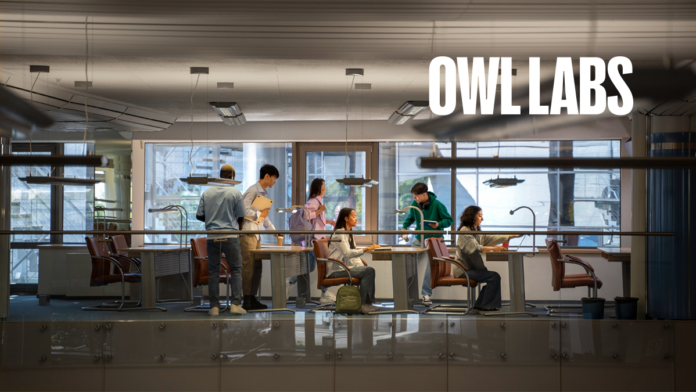As the hybrid workplace continues to evolve in 2024, IT professionals need to be prepared for an array of challenges and changes. According to Owl Labs’ 2024 IT Trends report, 72% of UK employees place high importance on good tech in their working environments.
The report highlights that the overuse of tech tools, employee monitoring, and technical difficulties are key areas of concern. The report also suggests that emerging technologies such as AI, improved video conferencing, and augmented reality could shape the future of the workplace.
- 72% of UK employees say that good tech is important to their working life.
- 48% of employees feel their company uses too many tech tools.
- 82% of employees report that they have lost meeting time due to tech difficulties.
Decoding the 2024 IT Trends: A New Era of Hybrid Work
The world of Information Technology (IT) is constantly evolving, and with the shift towards hybrid work, it’s more critical than ever to stay ahead of the trends. The 2024 IT Trends report by Owl Labs, compiled using data from the State of Hybrid Work report, offers some intriguing insights into the future of work and the role technology will play in it.
The Physical Workplace: A Tech-Driven Evolution
The physical workplace is undergoing a tech-driven evolution as companies grapple with the needs of a hybrid workforce. One key finding from the report is that
From meeting room setups to video conferencing hardware, the aim is to create a seamless connection between those in the office and those working remotely. However, with only 25% of employers having upgraded their video meeting technology in the past year, there’s room for improvement.
The Virtual Workplace: Balancing Connectivity and Privacy
The virtual workplace poses its own set of challenges. The report highlights a clear concern about proximity bias – the perception that those working in the office are viewed as more diligent than their remote counterparts.
In response to these concerns, some companies have introduced employee activity-tracking software, but this move isn’t without controversy. The report reveals that 42% of workers feel that having their work activities monitored affects them at work.
When Physical and Virtual Collide
The intersection of the physical and virtual workplace is perhaps most acutely felt in meetings. Technical difficulties are a persistent issue, with 82% of workers reporting lost meeting time due to tech problems. The report suggests that the right technology could make hybrid meetings more effective and inclusive, reducing the need for IT intervention.
Looking Ahead: The Future of Workplace Tech
So, what does the future hold for workplace tech? The report suggests that artificial intelligence (AI) is a hot topic, with 29% of employers having added AI tech to replace or augment employee roles. Looking ahead, the technologies that workers would like their employers to adopt include improved video conferencing technologies, AI assistants, augmented reality (AR) devices, and even holograms or avatars.
Final Thoughts
The 2024 IT Trends report presents a vivid picture of a rapidly evolving workplace, where technology is not just an enabler but a key determinant of how, when, and where work is done. As we navigate the hybrid future, it’s clear that the role of IT teams is more crucial than ever.
Whether it’s ensuring seamless connectivity, addressing privacy concerns, or pioneering the adoption of AI and other emerging technologies, the task ahead is challenging but also full of opportunities to redefine the future of work.
FAQ
Q: What percentage of UK employees consider good tech important to their working life?
A: 72% of UK employees say that good tech is important to their working life.
Q: How many employees feel that their company uses too many tech tools?
A: Almost half (48%) of employees feel that their company uses too many tech tools.
Q: How many remote employees feel that they are not seen or heard compared to their in-person counterparts?
A: 39% of remote employees feel that they are not seen or heard compared to their in-person counterparts.
Q: How many employees report losing meeting time due to tech difficulties?
A: 82% of employees report that they have lost meeting time due to tech difficulties.
Q: How many employees said they would be enticed to come to the office if there were better meeting technology?
A: 12% of workers said that they would be enticed to come to the office if there were better meeting technology.
Q: What percentage of employers have upgraded their video meeting technology in the past year?
A: Only 25% of employers have upgraded their video meeting technology in the past year.
Q: What percentage of employees feel that their company uses too many communication platforms?
A: 48% of respondents feel that their company uses too many communication platforms.
Q: What percentage of employers added or increased employee activity tracking or monitoring software in 2023?
A: Over a third (36%) of employers added or increased employee activity tracking or monitoring software in 2023.
Q: What percentage of workers feel that having their work activities monitored affects them at work?
A: 42% of workers feel that having their work activities monitored affects them at work.
Q: What percentage of workers feel they are not seen or heard as remote employees?
A: 39% of workers feel they are not seen or heard as a remote employee.
Q: What percentage of employers have added AI tech to replace or augment employee roles?
A: 29% of employers have added AI tech to replace or augment employee roles.
Q: What technologies would workers want their employers to adopt in the next two years?
A: According to the survey, workers would like their employers to adopt the following technologies in the next two years: 32% AI/AI assistants, 27% improved video conferencing technologies, 26% augmented reality (AR) or mixed-reality devices, 21% holograms or avatars, and 18% virtual reality (VR) headsets.
Q: What effect will generative AI have on workers’ jobs in the next five years?
A: According to the survey, 32% of workers believe that generative AI will help them do their job faster/more efficiently, while 22% believe it will create new jobs and their team will grow, 21% think it will make their job more interesting, 21% believe it will compete with their job, 19% anticipate ethical issues, and 17% are concerned that it will steal their job.






